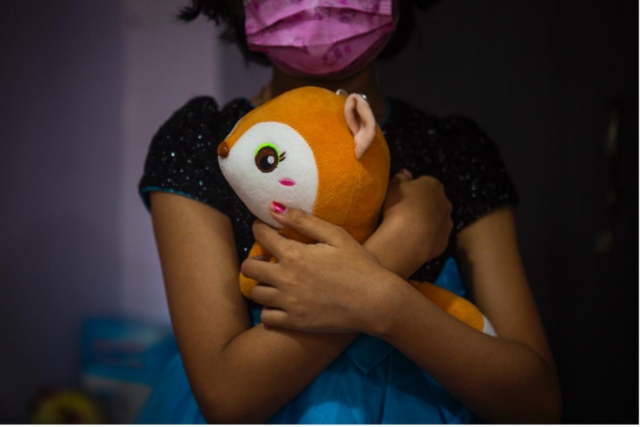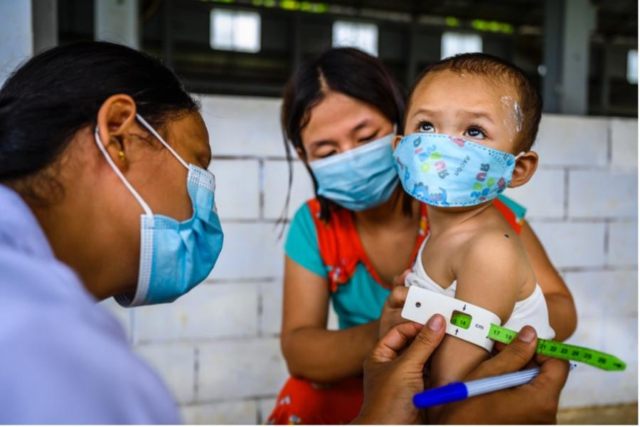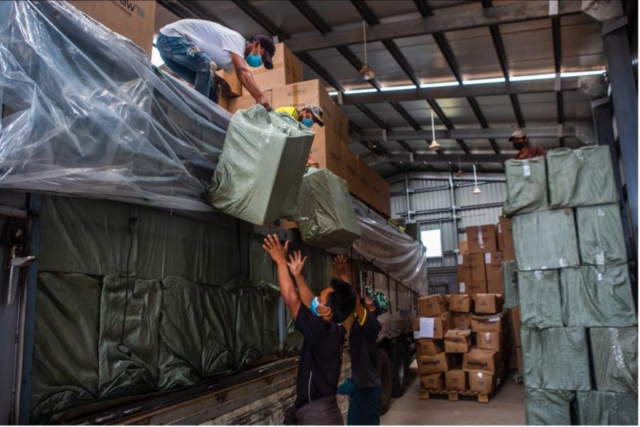Resilient humanitarian workers redouble efforts to support communities in Myanmar


Caption: The military takeover has personally affected the aid workers and their families too.
“The world shouldn’t forget Myanmar.”
*All names in this story have been changed to protect confidentiality.
“The painful situation that I see our children in pushes me to work even harder,” said Shar Myar, * a humanitarian worker with an international organisation working in Myanmar.
Since the military takeover in Myanmar on 1 February 2021, hundreds of children have been abducted, recruited into armies, arrested, and killed by landmines or artillery. Many have no access to basic social services, and millions need humanitarian assistance. Yet international agencies are staying on the ground, working with national organizations to deliver much-needed assistance.
Shar Myar, who is from Myanmar and whose job is to monitor and report incidents of grave violations against children and link the children and families with response and support services, recently helped secure the release of two abducted children. As they have done for thousands of other children, her organisation supported them with health care, food, cash support and mental health counselling.
Yet other cases end tragically.
Shar Myar mentioned the case of four abducted boys, who were found dead in a pit latrine. “I can’t even find the words to express how I felt,” she said.
The military takeover came on top of the devastating impact of the COVID-19 pandemic and exacerbated protracted conflicts already ongoing in many parts of the country.
About 14.4 million people are now in need of humanitarian assistance in Myanmar in a country of about 55 million, according to UN data. Moreover, most states and regions are contaminated with landmines, making Myanmar one of the world’s most mine-affected countries.

Caption: Humanitarian workers are working on the ground to deliver much-needed assistance.
Finding ways to cope
Most aid workers in Myanmar have been personally affected.
While on a short stay in her home state of Kayah, Shar Myar had to flee with her family. She now lives with seven members of her extended family in Yangon, in a small apartment. She has recently learned her family’s house in Kayah was burnt down.
Kyaw Moe*, who works for another humanitarian organisation in Shan State, was in the office when he heard about the sudden military takeover. “It reminded me of the past,” he said. “I was scared for my country. I was so depressed that for the first week I found it difficult to get out of bed.”
Another humanitarian worker, Aung Tun*, said that talking with children and families since the military takeover has been challenging.
“I found it traumatising. I couldn’t sleep,” he said. “But I had to toughen up.”
Aung Tun said he practises meditation and encourages his friends, particularly his male friends who are not used to seeking mental health support, to ask for help.

Caption: Most aid and civil society organisations have had to find innovative ways to help affected people.
New ways of operation
Most aid and civil society organisations have had to find innovative ways to help affected people. Many staff of Myanmar origin find it hard to believe how the nature of their work has changed so quickly.
Kyaw Moe used to work with the government. Now, much of his work is managing humanitarian assistance and addressing human rights violations, including organizing legal aid support.
Security challenges and restricted access have hampered the provision of humanitarian assistance.
However, this year, some humanitarian access has been granted, particularly to provide supplies and services for children and families living in towns.
Aung Tun recently visited Kachin State, bordering China. Young people there – most of whom had to drop out of school or university – now take part in activities, including vocational training.
While Aung Tun witnessed the positive impact of the activities, he also felt the pain that the young people had experienced. “They are only a few years younger than me,” he said. “They feel their future has been thrown away. I could see it in their eyes.”
And Aung Tun talked on behalf of all humanitarian workers when he said, “The world shouldn’t forget Myanmar.”

